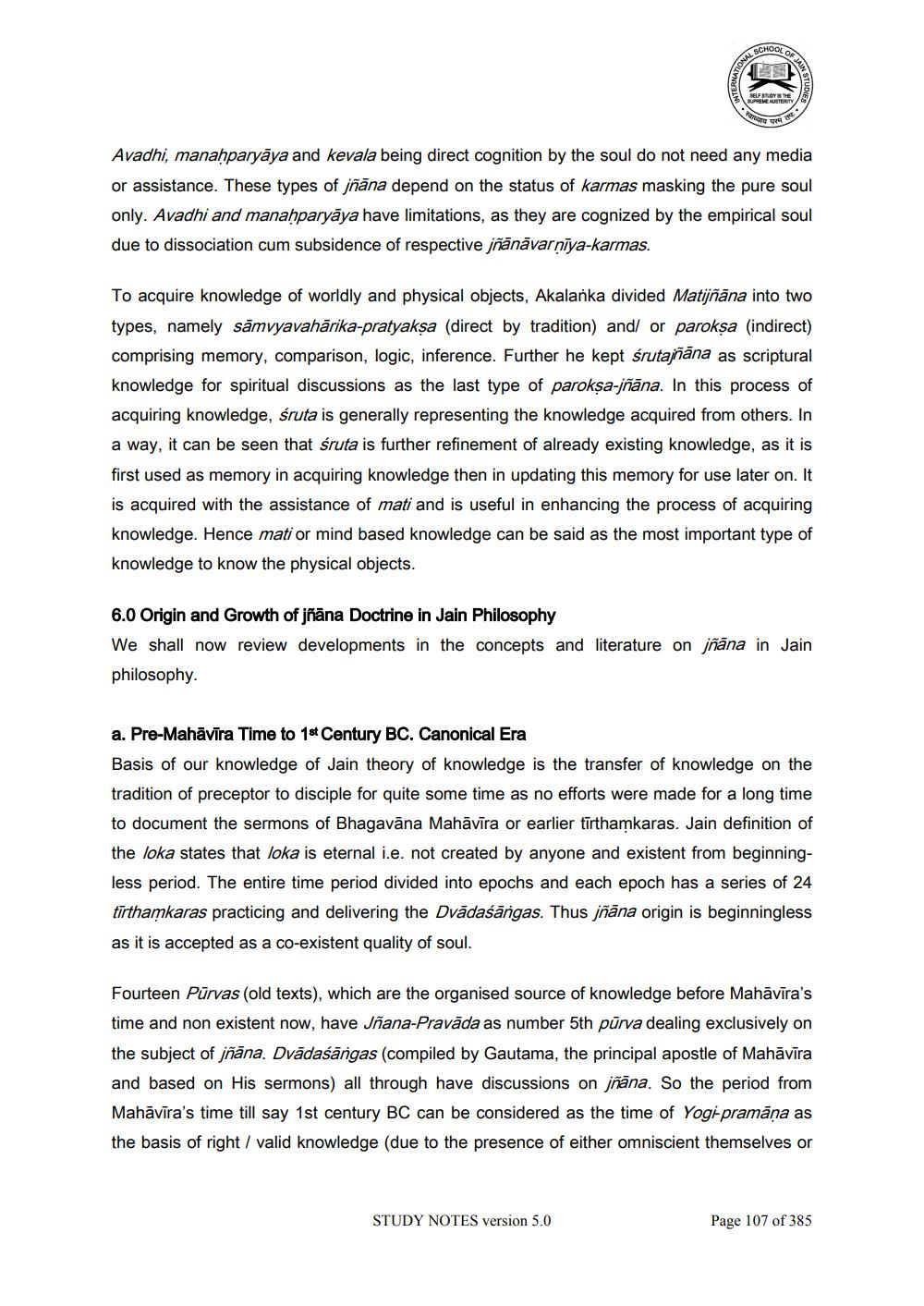________________
Avadhi, manahparyāya and kevala being direct cognition by the soul do not need any media or assistance. These types of jñāna depend on the status of karmas masking the pure soul only. Avadhi and manahparyāya have limitations, as they are cognized by the empirical soul due to dissociation cum subsidence of respective jñānāvarnīya-karmas.
To acquire knowledge of worldly and physical objects, Akalanka divided Matijñāna into two types, namely sāmvyavahārika-pratyaksa (direct by tradition) and/ or paroksa (indirect) comprising memory, comparison, logic, inference. Further he kept śrutajñāna as scriptural knowledge for spiritual discussions as the last type of paroksa-jñāna. In this process of acquiring knowledge, śruta is generally representing the knowledge acquired from others. In a way, it can be seen that śruta is further refinement of already existing knowledge, as it is first used as memory in acquiring knowledge then in updating this memory for use later on. It is acquired with the assistance of mati and is useful in enhancing the process of acquiring knowledge. Hence mati or mind based knowledge can be said as the most important type of knowledge to know the physical objects.
6.0 Origin and Growth of jñāna Doctrine in Jain Philosophy We shall now review developments in the concepts and literature on jñāna in Jain philosophy.
a. Pre-Mahāvīra Time to 1st Century BC. Canonical Era Basis of our knowledge of Jain theory of knowledge is the transfer of knowledge on the tradition of preceptor to disciple for quite some time as no efforts were made for a long time to document the sermons of Bhagavāna Mahāvīra or earlier tīrthamkaras. Jain definition of the loka states that loka is eternal i.e. not created by anyone and existent from beginningless period. The entire time period divided into epochs and each epoch has a series of 24 tirthamkaras practicing and delivering the Dvādaśāngas. Thus jñāna origin is beginningless as it is accepted as a co-existent quality of soul.
Fourteen Pūrvas (old texts), which are the organised source of knowledge before Mahāvīra's time and non existent now, have Jñana-Pravāda as number 5th pūrva dealing exclusively on the subject of jñāna. Dvādaśāngas (compiled by Gautama, the principal apostle of Mahāvīra and based on His sermons) all through have discussions on jñāna. So the period from Mahāvīra's time till say 1st century BC can be considered as the time of Yogi pramāna as the basis of right / valid knowledge (due to the presence of either omniscient themselves or
STUDY NOTES version 5.0
Page 107 of 385




